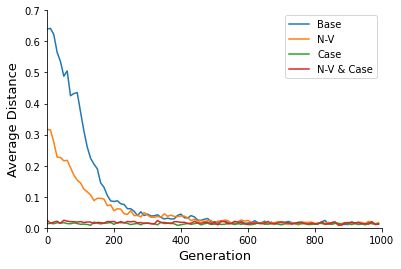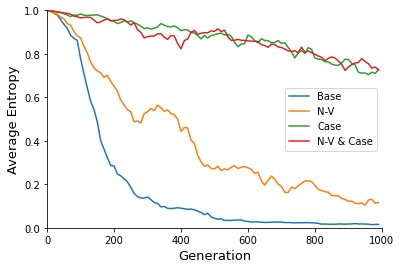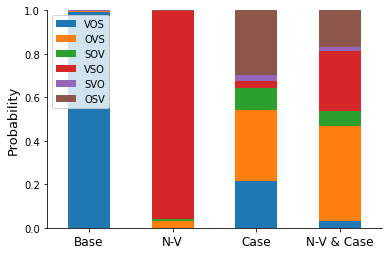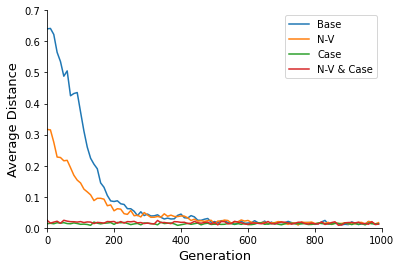Most natural languages have a predominant or fixed word order. For example in English the word order is usually Subject-Verb-Object. This work attempts to explain this phenomenon as well as other typological findings regarding word order from a functional perspective. In particular, we examine whether fixed word order provides a functional advantage, explaining why these languages are prevalent. To this end, we consider an evolutionary model of language and demonstrate, both theoretically and using genetic algorithms, that a language with a fixed word order is optimal. We also show that adding information to the sentence, such as case markers and noun-verb distinction, reduces the need for fixed word order, in accordance with the typological findings.
翻译:大多数自然语言都有主导或固定的单词顺序。 例如,在英语中,单词顺序通常是主题- Verb-Object。 这项工作试图从功能角度解释这一现象以及字顺序方面的其他类型调查结果。 特别是, 我们研究固定的单词顺序是否提供了功能优势, 解释这些语言为何盛行。 为此, 我们考虑一种语言的进化模式, 并在理论上和使用遗传算法表明, 有固定单词顺序的语文是最佳的。 我们还表明, 在句子中添加信息, 如案件标记和无动词区分, 减少对固定单词顺序的需求, 根据类型调查结果 。







